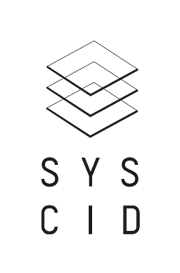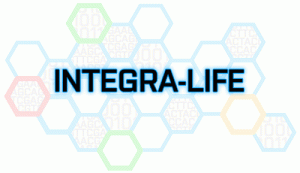
A Systems medicine approach to chronic inflammatory disease

A SYSCID consortium aims to develop a system medicine approach for disease prediction in chronic inflammatory diseases (CID). We will focus on three major CID indications with distinct characteristics, yet a large overlap of their molecular risk map: inflammatory bowel disease. systemic lupus erythematosus and rheumatoid arthritis. There are 15 partners from major cohorts and initiatives in Europe joined in this project (i.e. IHEC, ICGC, Twins UK and Meta-HIT) to investigate human dana sets on three major levels of resolution: whole blood signatures, signatures from purified immune cell types (with focus on CD14 and CD4/CD8) and selected single cell analyses. Principle data layers will comprise SNPs, methylome, transcriptome and gut microbiome. Using this set up we will focus on three fundamental aims: (i) the identification of shared and unique «core disease signatures, which are associated with the disease state and independent of temporal variation, (ii) the generation of «predictive models of disease outcome» – builds on previous work that pathways/biomarkers for disease outcome and distinct from initial disease risk may be shared across disease to guide therapy decisions on an individual patient basis, (iii) «reprogramming disease» – will identify and target temporarily stable epigenetic alterations in macrophages and lymphocytes in epigenome editing approaches as biological validation and potential novel therapeutic tools.
Zoldoš group is involved in SYSCID project within the Workpackage WP9 (led by HUNIMED) by epigenetic reprogamming to cis-regulatory regions (i.e. pathogenic variants associated to CID, previously identified by partner Humanitas University, Milan, Italy) using dCas9 fusions (with activator and repressor domains, and/or epigenetic reader/eraser domains). The main goal is to model the impact of the most relevant pathogenic nucleotide variants on the gene expression programs of myeloid cells and CD8 cells. We will infer the possible functional impact of corrective interventions selectively targeting the activity of the regulatory elements harbouring such variants. Using multiple targeting and orthogonal regulation (simultaneous activation and repression of genes in the same cell) will aim to enable precise pathway shaping.
Type of funding scheme: RIA; Coordination and support action; Support actions
Work programme topics: HEALTH Innovative and personalized medicine
EU FP7 Call: H2020-SCI1-2016-RTD
Proposal number: 733100
Duration: 60 months (1st January 2017 – 31st March 2022)
Host institution: Genos (third party Faculty of Science University of Zagreb)
Coordinating person: Professor Philip Rosenstiel, PhD, Christian-Albrechts-University Kiel with University Hospital Schleswig Holstein, Campus Kiel
EU Funding to Genos and Faculty of Science: 880,000.00 Eur
Detailed information: http://syscid.eu/home/
Innovative training in methods for future data (IMForFUTURE)
IMforFUTURE is an innovative, multidisciplinary and intersectoral research training programme which addresses current shortcomings in omics research. We aim to open the new research horizon in interaction of genetic, glycomics and epigenomics datasets into systems biology by developing innovative method for high throughput omics and for integrative analysis of omics data. We focus on ageing which is the biggest single risk factor for many diseases. By application of our novel methods to emerging datasets representing inflammation and immunology IMforFUTURE will contribute to understanding of the underlying biological processes involved in diseases and ageing. In our consortium 6 academic and 4 industrial partners – experimental and theoretical – participate in research and training via teaching, offering secondments and hosting early stage researchers (ESR). We offer courses in high throughput methodology, genomics and statistics. Emphasis will be on data management, data stewardship, entrepreneurship and complementary skills.
Type of funding scheme: MSCA-ITN-ETN
Work programme topics: HEALTH Innovative and personalized medicine
EU FP7 Call: H2020-MSCA-ITN-2016
Proposal number: 721815
Duration: 48 months (1st April 2017 – 31st March 2021)
Host institution: Faculty of Science University of Zagreb
Coordinating person: Professor Jeanine Houwing-Duistermaat, PhD, University of Leeds, UK.
EU Funding to Faculty of Science: 880,000.00 Eur
Detailed information: https://imforfuture.eu/
Completed projects:
FP7-HEALTH-2012-INNOVATION-1 project:
Diagnostic and prognostic biomarkers for inflammatory bowel disease (IBD-BIOM)
Type of funding scheme: Collaborative project – small or medium-scale focused research project – stage 2
Work programme topics: HEALTH.2012.2.4.5-2: Biomarkers and diagnostics for chronic inflammatory diseases of the joints and/or digestive system. FP7-HEALTH-2012-INNOVATION-1
EU FP7 Call: FP7-HEALTH-2012-INNOVATION-1
Host institution: Faculty of Science University of Zagreb
Coordinating person: Prof Jack Satsangi, PhD, University of Edinburgh, UK
EU Funding Total: 5,999,611.00 Eur
EU Funding UNI-ZG: 552,146.00 Eur
Detailed information: http://www.ibdbiom.eu/science/

Regional Potential project REGPOT-2012-2013-1:
Integrating research in molecular life sciences at the University of Zagreb (INTEGRA-LIFE)
Type of funding scheme: SP4-Capacities; Coordination and support action; Support actions
Work programme topics:
EU FP7 Call: FP7-REGPOT-2012-2013-1
Host institution: University of Zagreb
Coordinating person: Prof Gordan Lauc, PhD, Faculty of Pharmacy and Biochemistry University of Zagreb
EU Funding UNI-ZG: 3,224,464.00 Eur
Detailed information: http://integralife.bioinfo.hr

